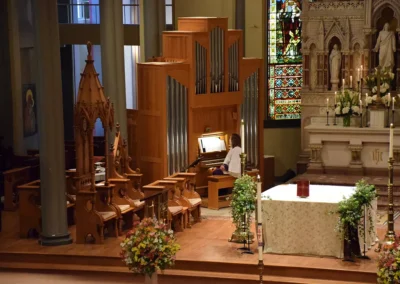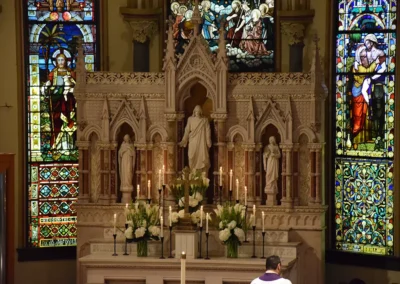Christ Church Cathedral
A church in the heart of the city, with a heart for the city
What’s new
Cathedral Matters
Visit Us
Discover the Cathedral
From Episcopal News Service
Bishop Diane M. Jardine Bruce named interim dean and president of Seminary of the Southwest
December 02, 2025
[Episcopal News Service] The Seminary of the Southwest announced on Dec. 2 that it had named the Rt. Rev. Diane M. Jardine Bruce as interim dean and president, effective Jan. 2, 2026. Bruce was bishop suffragan in the Diocese of Los Angeles from 2010 to 2021, and from there she served as bishop provisional in the Diocese of West Missouri until earlier this year. She currently serves on the Executive Council of The Episcopal Church, where she is chair of the Joint Budget Committee and vice chair of the Joint Standing Committee on Finance. “Bishop Bruce takes a relational approach to her work of oversight, deepening trust through listening and partnering with other leaders,” Texas Bishop Suffragan Kathryn M. Ryan, chair of the Southwest Board of Trustees, said in the announcement. “She understands the role of an interim to strengthen the institution during a time of transition and will be a thoughtful and wise support and guide for our whole community. Her financial expertise and gifts as a seasoned leader in multicultural ministry make her well-suited to lead Seminary of the Southwest in this season.” Bruce said of her appointment, “I am thrilled to join the students, staff and faculty at Seminary of the Southwest and to walk with them and the board through this time of transition. I have long admired the work and direction of this fine and forward-thinking institution and am excited to be a part of it.” The seminary has been without a dean and president since Sept. 4, when the board terminated Scott Bader-Saye after he admitted to developing an inappropriate relationship with an employee he had supervised. He had been in that role since January. The news release also said the seminary has hired the Isaacson Miller firm to assist with the search for its next dean and president. It noted that Ernest Brooks III, the primary consultant for the seminary’s search, recently has worked with the Cathedral of St. John the Divine in New York City on its dean’s search and is currently engaged with Berkley Divinity School at Yale University in New Haven, Connecticut, on a search for its next dean.


